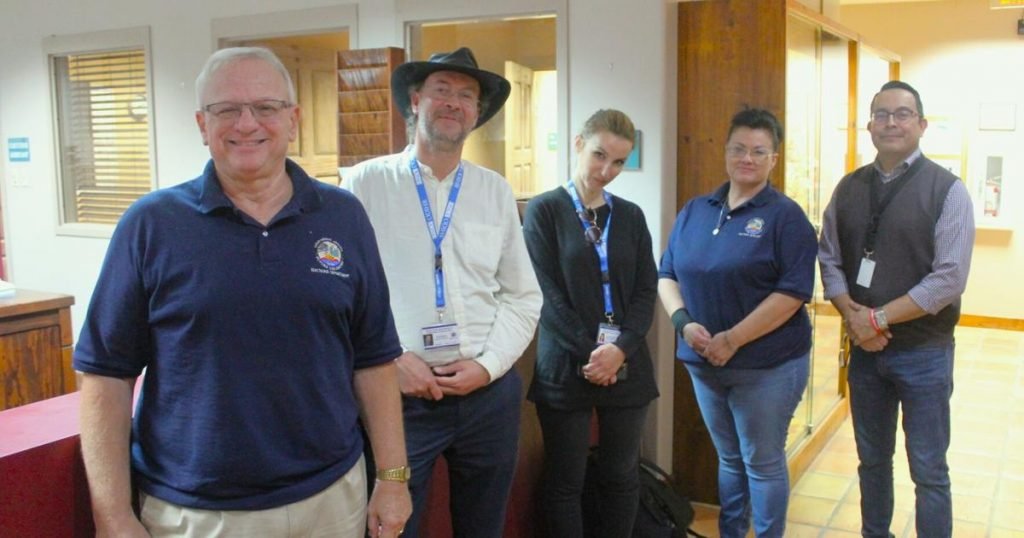Last week, La Paz County was in the international spotlight. On Tuesday, October 25, two international election observers visited the county.
Ingo Buettner is from Germany and Anica Kuzmanovska is from Macedonia. They are at the Office for Democratic Institutions and Human Rights, part of the Organization for Security and Cooperation in Europe, based in Warsaw, Poland. They came to the La Paz County Elections Office to speak with elections officer Bob Bartelsmeyer and elections assistant Laurie Thornberry. Also in attendance was Richard Garcia, the county registrar.
Buettner said the OSCE emerged from the Cold War in the 1970s. It was established as a way of easing tensions between East and West. His one aspect of this is that Member States can monitor elections in other Member States. This year, ODIHR has about 20 observer teams in the United States heading into his November general election.
Buettner said he observed more than 300 elections, including in places such as Russia, Ukraine, Pakistan, Georgia and Armenia.
Bartelsmeyer said he also observed elections in the Balkans.
Buettner said their job is to observe, not interfere. They are mostly concerned with process. They want to see if elections are open, fair, and transparent. They want all election records, including financial statements, to be available to the public. They are not interested in the outcome.
“If you think of the election as ‘The Muppet Show,’ we are Statler and Waldorf,” a reference to the two characters sitting on the balcony and commenting on the show’s sketches.
Buettner and Kuzmanoska also referred to the “Star Trek” television series, noting that their “primary mandate” was not to interfere with the cultural developments of other worlds.
Buttner said they will have a preliminary report ready soon after the election. They produce the final report two months after him.
“What we’re trying to do is get a feel for and understand the mood of the election,” he said. “That’s part of what will be included in the final report.”
Buettner and Kuzmanoska said they and the OSCE could offer different perspectives from outside the American context.
“It’s enlightening,” said Buttner.
As an example, Buttner said the process of selecting political party candidates in the United States is unusual. In the United States, the entire major partisan process is paid for by the taxpayer and run by the government.
“For you, it’s normal,” he said.
Another thing they’ve noticed about American elections is that each state has its own way of doing things, and counties often have their own way of doing things. They acknowledged that it could be a headache for those trying to monitor the election.
Kuzmanowska asked Garcia a few questions during early voting in Arizona. She asked him how many mail-in ballots had been sent in the county, how many had been completed and returned, and how many had been returned because they could not be delivered.
Garcia said his office has sent out about 6,000 ballots. Of these, 400 to 500 are returned as undeliverable because their ballots cannot be forwarded. He said about 3,000 ballots are typically completed and returned.
When asked what happens to registered voters whose ballots are returned as undeliverable, Garcia said they remain on the ballot.
“They are still voters,” he said. “It could just be a mailing error. They can still show up and vote on Election Day. They’re still registered voters.”
Kuzmanowska, who knows that the integrity of the election has been a big issue this year, asked Garcia if he had many questions on the issue.
Buettner and Kuzmanovska said they were still observing what was happening so they couldn’t really share their impressions of what they saw. I visited Sedona.
“We’re having fun, but it’s been hard work,” says Buettner. “We’re not doing the tourism experience. We’re talking to people and observing the process.”
Bartelsmeyer said he thinks it would be great to have international observers visit La Paz county and give their opinion on how elections are held here. He said he was looking forward to what their report would say.







